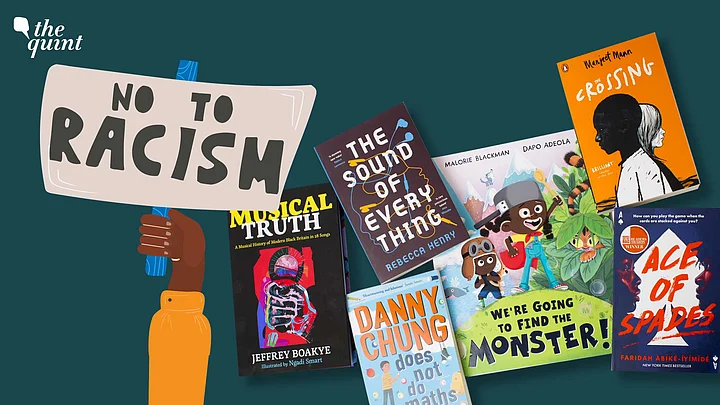‘After years of frustration, and in a moment of pure rage, the Jhalak Prize was born.’
In 2016, I started the Jhalak Prize after years of observing British literary prize shortlists, publishers, literary festivals, bookshops, and book review pages exclude writers of colour. Reports, including those commissioned and funded by the state, repeatedly demonstrated that British publishing makes little room for Global Majority writers. Instead of and despite overwhelming evidence, many blamed a ‘lack of literary merit’ for these exclusions.
After years of frustration, and in a moment of pure rage, the Prize was born. The Prize seeks to identify and celebrate the best of literature by writers of colour in the United Kingdom (UK).
However, that is not all the Jhalak Prize is, can be or was intended to become.
Beyond Genres
The prize does not limit itself by genre. This was initially so because Britain does not publish enough books by writers of colour to create separate, multiple long lists. In its early years, the prize even considered adult and children’s books together. After four years, the Jhalak Children’s and Young Adult Prize was introduced in 2020. The two awards are not limited by genre and consider fiction, non-fiction, poetry, graphic novels, picture books and more.
Not limiting the awards by genre has yielded a positive corollary: Jhalak Prize longlists are a glowing neon sign to prizes that honour debuts, fiction, poetry, children, young adult and non-fiction, demanding that fellow prizes that focus on specific genres or areas justify their normalised, unquestioning all-white lists.
Moreover, the awards are always decided by a panel of judges who are practising writers of colour, drawn from varied backgrounds, expertise and career trajectories, ensuring that the Prize refuses to accept all-white prize juries as a norm. Our juries not only highlight writers with ample, if not overwhelming, expertise but also give upcoming writers a collegiate, nurturing opportunity to be part of the mysterious book prize judging process.
Don’t Excuse our Exclusion
Moreover, the Jhalak Prize is a community-focused and led initiative. At every step of the process, the prize and our team of volunteers centre writers and readers of colour, asking ourselves and our communities what works best for us. When we identify a need, we find ways to address it.
This is why the Prize actively reaches out to literary festivals and bookshops to offer appearance opportunities to our longlisted writers and judges as individuals or as part of panels.
Our website has become an ever-growing database of accomplished writers so that no literary organisation or event can ever excuse our exclusion by declaring they can’t find us or, worse, that we don’t exist.
This community-based ethos also means we partner with like-minded organisations. From our foundation, the historic Authors’ Club has supported the Prize. The pandemic pushed the Prize online in 2020 but also resulted in a fruitful collaboration with the British Library that hosted globally available online awards in 2021 and will provide a hybrid celebration with an in-person reception as well as a globally live-streamed event for 2022.
Moreover, our partnership with National Book Tokens intends to highlight and maximise the sales potential of books by writers of colour. The partnership means that bookshops up and down the country support Jhalak Prize-shortlisted titles with creative instore displays and promotion across websites and social media. In 2022, Waterstones, Foyles, Blackwells, Bookshop.org and over 120 independent bookshops are promoting our shortlists.
Moreover, for a second year, twelve independent bookshops across Britain are not only promoting our shortlists but also championing a shortlisted book each with author events, podcasts, Spotify playlists, giveaways and more. The partnership has amply demonstrated that independent bookshops are best placed to reach readers in their communities and can not only showcase – and sell - books by writers of colour but also nurture an expanding base of potential book-buyers.
A Battle Against Injustice
We also continue to bring books by writers of colour to readers with the ‘Jhalak Books to Readers’, which donates books each year and partners donors with independent booksellers to ensure that books from our longlists reach readers through donations to community and school libraries, soup kitchens, refugee centres and other community support initiatives. Through the programme, we reach readers who are often excluded for social, economic or even geographical reasons, as well as extend the readership of a broad base of writers of colour in the country.
Finally, the Jhalak Art Residency annually commissions an artist and illustrator of colour to create unique and original work of art for the two awards.
The aim of the residency, as with the Jhalak Prize, is to shine a light on artists of colour in contemporary Britain, recognise their creative output, and celebrate their works.
The Jhalak Prize has always been a strategic intervention for equity and justice for writers and readers as well as a literary prize. Beyond our annual long and shortlists, and winners, we are disruption, defiance, challenge, and subversion. We are a movement to decolonise our literature, imaginations, cultures, and, most of all, ourselves.
(The author is professor of creative writing and Inclusion in the Arts at the School of Art, Architecture & Design at London Metropolitan University. This is an opinion article and the views expressed are the author’s own. The Quint neither endorses nor is responsible for them.)
